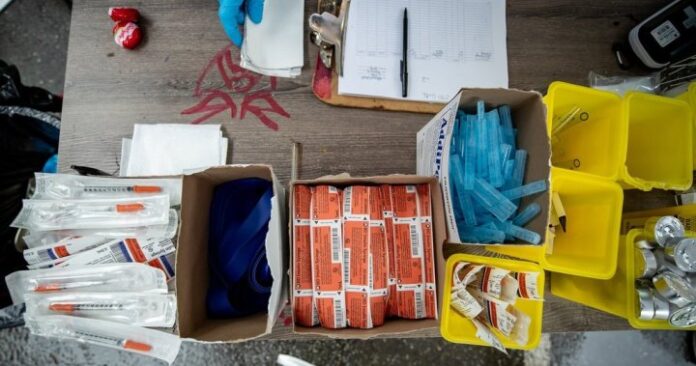A study into safer supply and drug decriminalization policies in British Columbia has found that both were associated with increased opioid overdose hospitalizations.
The report says that there was no change in deaths associated with safer supply, while neither policy appeared to mitigate the opioid crisis that has claimed more than 16,000 lives in B.C. since being declared a public health emergency in 2016.
The authors of the study, published in JAMA Health Forum, says it’s believed to be the first evidence on the association between overdoses and the decriminalization of drug possession in B.C., introduced in January 2023 then heavily curtailed in May 2024.
They say the increase in hospitalizations could be due to greater willingness to seek medical help, since decriminalization could reduce stigma, but it’s also possible that less stigma and fewer criminal penalties boost overdoses by facilitating diversion of safe-supply opioids.
The study was by researchers from Memorial University in St. John’s, as well as the University of Manitoba and Weill Cornell Medicine in New York.

Get daily National news
Get the day’s top news, political, economic, and current affairs headlines, delivered to your inbox once a day.
The research found that safer supply alone was associated with a 33 per cent increase in opioid hospitalizations, while the addition of decriminalization was associated with a further spike for an overall increase of 58 per cent, compared with before the safer supply program was introduced in 2020.
“There was insufficient evidence to conclusively attribute an increase in opioid overdose deaths to these policy changes,” it says.
The safer supply program involves providing pharmaceutical-grade opioids to people at risk of overdosing, but critics say it potentially worsens the crisis if safer supply drugs are diverted onto the streets.
The study looked at data from the beginning of 2016 to the end of 2023.
The province’s coroners service said earlier this month that 152 people died of toxic drug overdoses in January, marking four consecutive months that the toll was under 160.
Deaths in B.C. in January were down more than 30 per cent from a year earlier.
There have recently been declines in drug deaths across North America, with Health Canada reporting a 12 per cent decline from January to September 2024, compared to the same period in 2023.
© 2025 The Canadian Press



